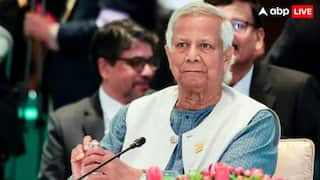EXPLAINED | The Places Of Worship Act And Its Relevance Amid Gyanvapi Masjid Row
The Places Of Worship Act, 1991 aims to forbid the conversion of a place of worship and maintain its religious character as was at the time of India’s Independence.

New Delhi: The Supreme Court on Tuesday will hear a plea by the Committee of Management of Anjuman Intezamia Masjid, Varanasi in which it has challenged the videography survey ordered by a local court of the Maa Shringar Gauri Sthal in the Kashi Vishwanath temple-Gyanvapi mosque complex.
This issue has once again brought to the fore the controversy around The Places Of Worship (Special Provisions) Act, 1991. Let’s take you through the origin of the dispute, the reasons and the relevance of this Act.
ALSO READ: Gyanvapi Masjid Case: Supreme Court To Hear Mosque Committee Plea Challenging Survey Today
Demand of Committee of Management of Anjuman Intezamia Masjid
The petition challenged the order of the Allahabad High Court that permitted a court-appointed commissioner to inspect and conduct a survey and videography of the Gyanvapi mosque.
In its plea, the Committee sought that the Gyanvapi mosque is exempt from the Places of Worship Act, 1991, because Kashi Vishwanath Temple and Shringar Ma Gauri temple within the Gyanvapi mosque complex falls under the Ancient Monuments and Archaeological Sites and Remains Act, 1958.
"It is quite clear from a reading of Section 3 and Section 4(1) and (2) that Place of Worship Act does not apply to Gyanvapi mosque complex," the plea noted.
Reasons behind the present controversy
The present controversy was triggered when five women had filed a petition in the court seeking permission for daily worship at the Shringar Gauri temple, which was allegedly situated inside the Kashi Vishwanath-Gyanvapi Mosque premises.
The order of the civil court for undertaking survey and videography at the premises came on their petition. The civil court had appointed a court commissioner to conduct a survey and videography of the site and the same was challenged before Allahabad High Court which dismissed the appeal on April 21.
Final status of the survey
A court-mandated videography survey of the Gyanvapi Masjid complex took place in Varanasi on Monday, the team visited the site for the third consecutive day amid tight security.
On May 12 the court said that the survey of the Gyanvapi mosque will continue despite objections from mosque authorities. The local court had earlier directed the authorities to submit a report by May 10, however, the survey could not take place as the mosque committee had opposed videography inside the mosque.
A local court here directed the district administration to seal a spot in the Gyanvapi Masjid complex after counsels representing the Hindu petitioners said a Shivling was found Monday during a court-mandated videography survey.
The claimed finding on the last day of the survey reignited the mandir-masjid debate over the Gyanvapi mosque-Shringar Gauri complex located close to the iconic Kashi Vishwanath temple.
What’s The Places Of Worship Act, 1991?
The Places Of Worship Act, 1991 aims to forbid the conversion of a place of worship and maintain its religious character as was at the time of India’s Independence on August 15, 1947.
Section 4 (1) of the Act states: “The religious character of a place of worship existing on the 15th day of August 1947 shall continue to be the same as it existed on that day.”
The Act has been in force since July 11, 1991, according to the government website.
The Act in Section 4 (2) also elaborated that if any suit, appeal, or other proceedings concerning the conversion of the religious traits of any place of worship, existing on August 15, 1947, is pending before any court, tribunal or other authority, the same shall abate. It further stipulates that no fresh proceedings on such matters shall be initiated.
It is to be noted that Section 3 of the Act prohibits conversion of a religious place in any manner, even to cater to a particular section of the religion.
“No person shall convert any place of worship of any religious denomination or any section thereof into a place of worship of a different section of the same religious denomination or of a different religious denomination or any section thereof,” it stated.
Why was the act introduced?
The Act was brought about by a Bill introduced by the erstwhile Union home minister in the PV Narasimha Rao Cabinet, Shankarrao Bhavrao Chavan. The Act was cleared at the time when BJP leader LK Advani’s Rath Yatra for the Ram Janmabhoomi movement had gathered massive support.
This was brought after Advani’s arrest in Bihar and the shooting of kar sevaks in Uttar Pradesh ordered by the Mulayam Singh government. Through this bill, Chavan sought to avert incidents of communal unrest.
What are challenges to the places Of Worship Act?
BJP leader and lawyer Ashwini Kumar Upadhyay challenged the Places of Worship Act, 1991, last year in the Supreme Court. He pointed out that the law was a contravention of the principle of secularism as laid down by the Constitution of India.
In the plea, Upadhyay contended that Hindus, Jains, Buddhists and Sikhs should have similar rights to establish, manage and maintain their religious places like Muslims, Parsis and Christians, and the State cannot abridge this right.
There is another petition pending with the Supreme Court filed by Vishwa Bhadra Pujari Purohit Mahasangh challenging the validity of the Act.
(With inputs from agencies)
Related Video
Delhi flood update: once again AAP points out BJP, for Delhi's present situation





























